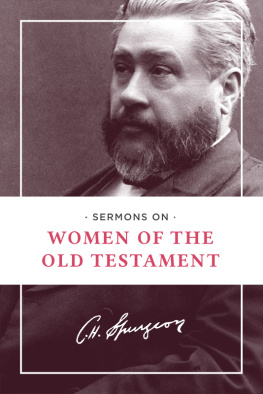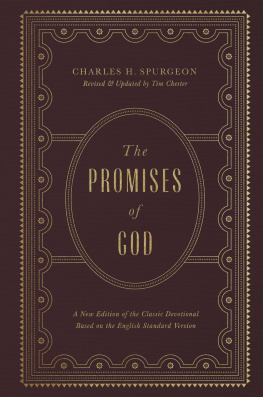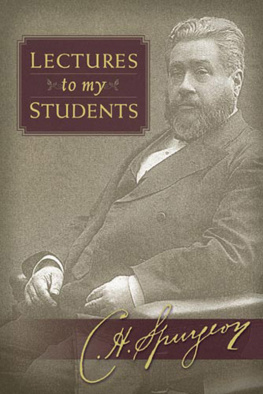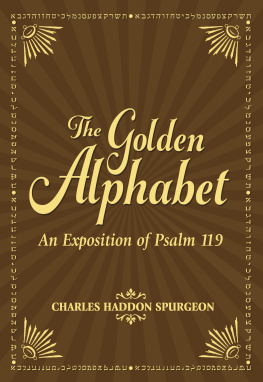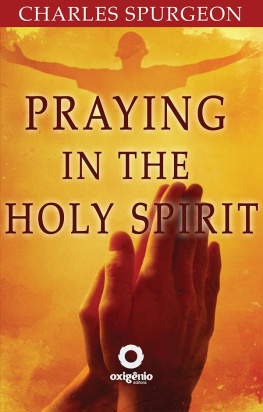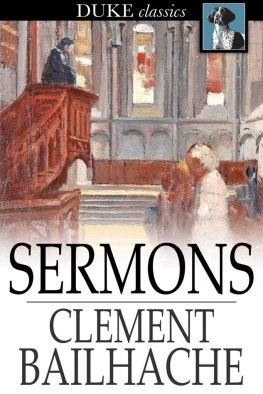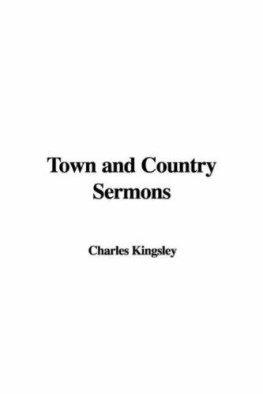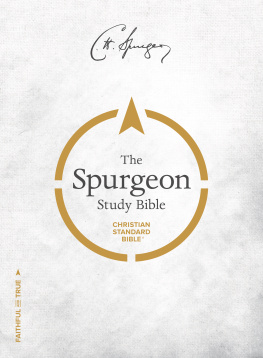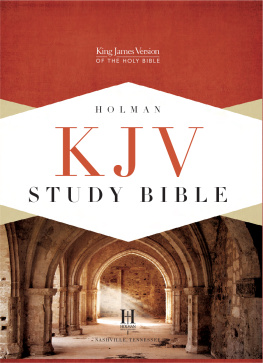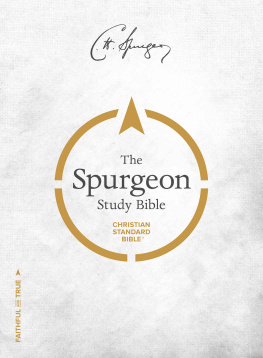Preface
Charles Haddon Spurgeon
18341892
Ask most people today who Charles Haddon Spurgeon was, and you might be surprised at the answers. Most know he was a preacher, others remember that he was Baptist, and others go so far as to remember that he lived in England during the nineteenth century. All of this is true, yet Charles Haddon Spurgeon was so much more.
Born into a family of Congregationalists in 1834, Spurgeons father and grandfather were both Independent preachers. These designations seem benign today, but in the mid-nineteenth century, they describe a family committed to a Nonconformist pathmeaning they did not conform to the established Church of England. Spurgeon grew up in a rural village, a village virtually cut off from the Industrial Revolution rolling over most of England.
Spurgeon became a Christian at a Primitive Methodist meeting in 1850 at age sixteen. He soon became a Baptist (to the sorrow of his mother) and almost immediately began to preach. Considered a preaching prodigya boy wonder of the fensSpurgeon attracted huge audiences and garnered a reputation that reached throughout the countryside and into London. As a result of his great success, Spurgeon was invited to preach at the New Park Street Chapel in London in 1854, when he was just nineteen. When he first preached at the church, they were unable to fill even two hundred seats. Within the year, Spurgeon filled the twelve-hundred-seat church to overflowing. He soon began preaching in larger and larger venues, outgrowing each, until finally in 1861 the Metropolitan Tabernacle was completed, which seated six thousand persons. This would be Spurgeons home base for the rest of his career, until his death in 1892 at age fifty-seven.
Spurgeon married Susannah Thompson in 1856 and soon they had twin sons, Charles and Thomas, who would later follow him in his work. Spurgeon opened Pastors College, a training school for preachers, which trained over nine hundred preachers during his lifetime. He also opened orphanages for underprivileged boys and girls, providing education to each of the orphans. And with Susannah, he developed a program to publish and distribute Christian literature. He is said to have preached to over ten million people in his forty years of ministry. His sermons sold over twenty-five thousand copies each week and were translated into twenty languages. He was utterly committed to spreading the gospel through preaching and through the written word.
During Spurgeons lifetime, the Industrial Revolution transformed England from a rural, agricultural society to an urban, industrial society, with all the attendant difficulties and horrors of a society in major transition. The people displaced by these sweeping changesfactory workers and shopkeepersbecame Spurgeons congregation. From a small village himself and transplanted to a large and inhospitable city, he was a common man and understood innately the spiritual needs of the common people. He was a communicator who made the gospel so relevant, who spoke so brilliantly to peoples deepest needs, that listeners welcomed his message.
Keep in mind that Spurgeon preached in the days before microphones or speakers; in other words, he preached without benefit of amplifier systems. Once he preached to a crowd of over twenty-three thousand people without mechanical amplification of any sort. He himself was the electrifying presence on the platform: he did not stand and simply read a stilted sermon. Spurgeon used an outline, developing his themes extemporaneously, and speaking in common language to common people. His sermons were filled with stories and poetry, drama and emotion. He was larger than life, always in motion, striding back and forth across the stage. He gestured broadly, acted out stories, used humor, and painted word pictures. For Spurgeon, preaching was about communicating the truth of God, and he would use any gift at his disposal to accomplish this.
Spurgeons preaching was anchored in his spiritual life, a life rich in prayer and the study of Scripture. He was not tempted by fashion, be it theological, social, or political. Scripture was the cornerstone of Spurgeons life and his preaching. He was an expositional preacher mostly, exploring a passage of Scripture for its meaning both within the text as well as in the lives of each member of his congregation. To Spurgeon, Scripture was alive and specifically relevant to peoples lives, whatever their social status, economic situation, or time in which they lived.
One has a sense that Spurgeon embraced Gods revelation completely: Gods revelation through Jesus Christ, through Scripture, and through his own prayer and study. For him, revelation was not a finished act: God still reveals himself, if one made oneself available. Some recognize Spurgeon for the mystic he was, one who was willing and eager to explore the mysteries of God, able to live with those bits of truth that do not conform to a particular system of theology, perfectly comfortable with saying, This I know, and this I dont knowyet will I trust.
Each of the sermons in this collection was preached at a different time in Spurgeons career and each has distinct characteristics. These sermons are not a series, as they were not created or intended to be sequential, nor have they been homogenized or edited to sound as though they are all of a kind. Instead, they reflect the preacher himself, allowing the voice of this remarkable man to ring clearly as he guides the reader into a particular account, a particular eventto experience, with Spurgeon, Gods particular revelation.
As you read, listen. These words were meant to be heard, not merely read. Listen carefully and you will hear the cadences of this remarkable preaching, the echoes of Gods timeless truth traveling across the years. And above all, enjoy Spurgeons enthusiasm, his fire, his devotion, his zeal to recognize and respond to Gods timeless invitation to engage the Creator himself.
Hagar: Compassion for Souls
Delivered on Lords Day morning, February 5, 1871, at the Metropolitan Tabernacle, Newington. No. 974.
She went, and sat her down over against him a good way off, as it were a bowshot: for she said, Let me not see the death of the child. And she sat over against him, and lift up her voice, and wept. Genesis 21:16
Briefly let us rehearse the circumstances. The child Isaac was, according to Gods word, to be the heir of Abraham. Ishmael, the elder son of Abraham, by the bondwoman Hagar, resided at home with his father till he was about eighteen years of age; but when he began to mock and scoff at the younger child whom God had ordained to be the heir, it became needful that he and his mother should be sent away from Abrahams encampment. It might have seemed unkind and heartless to have sent them forth, but God, having arranged to provide for them, sent a divine command which at once rendered their expulsion necessary, and certified its success. We may rest assured that whatever God commands he will be quite certain to justify. He knew it would be no cruelty to Hagar or Ishmael to be driven into independence, and he gave a promise which secured them everything which they desired. Also of the son of the bondwoman will I make a great nation; and again, I have blessed him, and will make him fruitful, and will multiply him exceedingly; twelve princes shall he beget, and I will make him a great nation. Had they both been able to go forth from Abrahams tent in faith, they might have trodden the desert with a joyous footstep, fully assured that he who bade them go, and he who promised that he would bless them, would be certain to provide all things needful for them.

